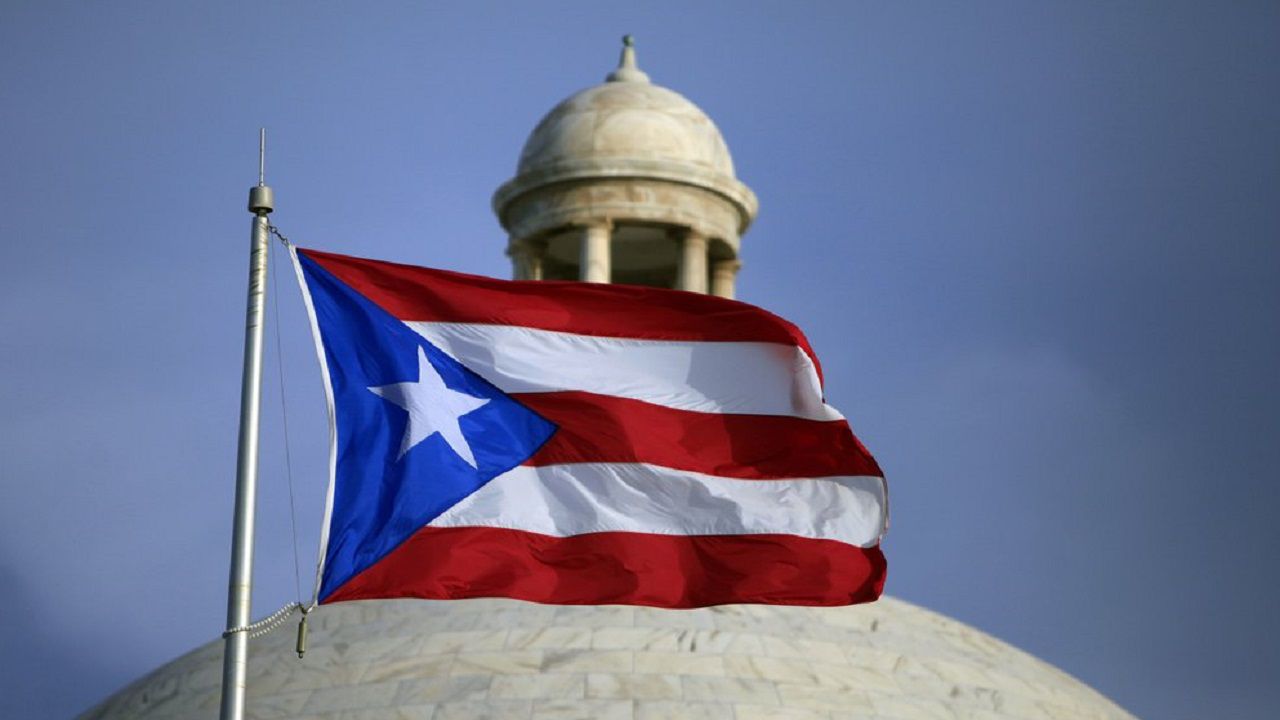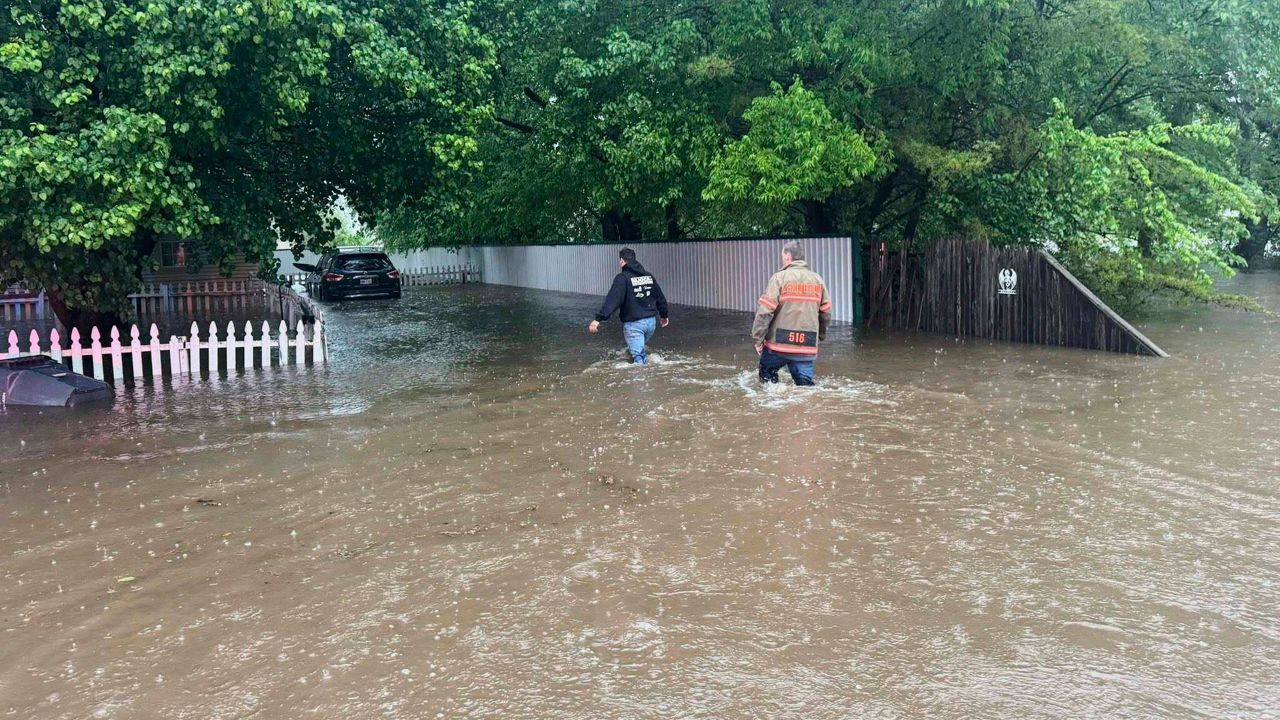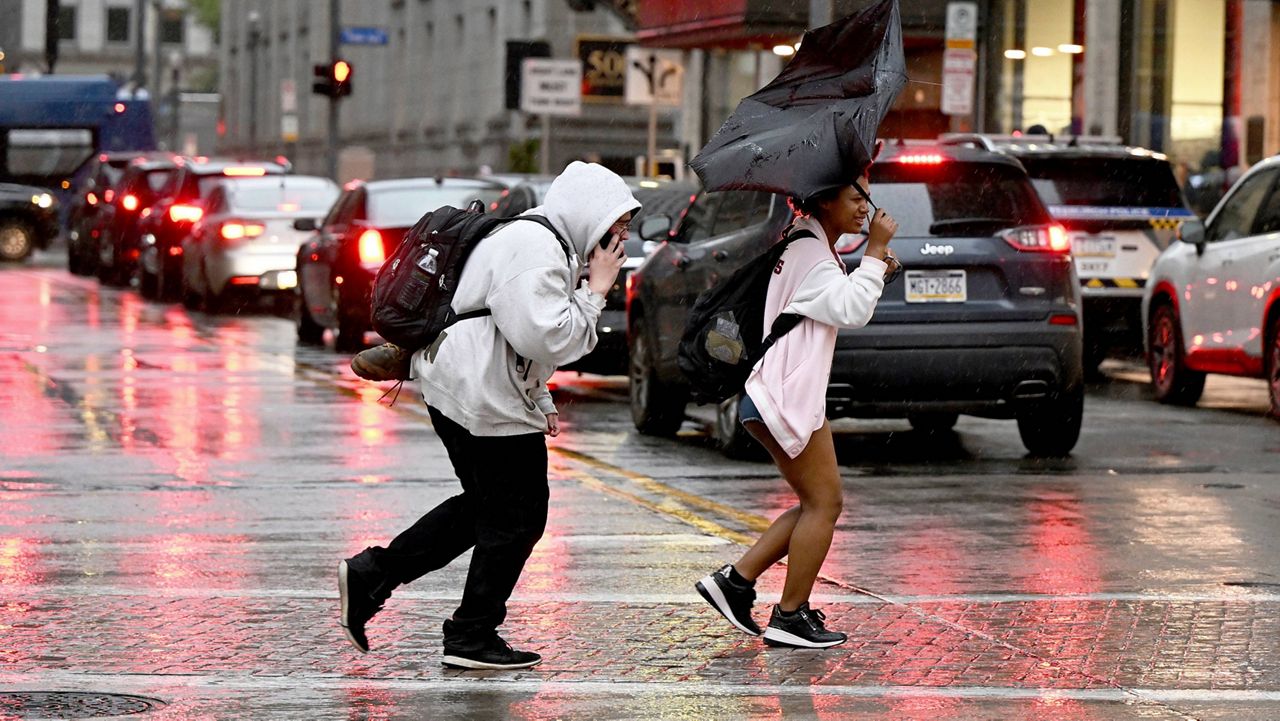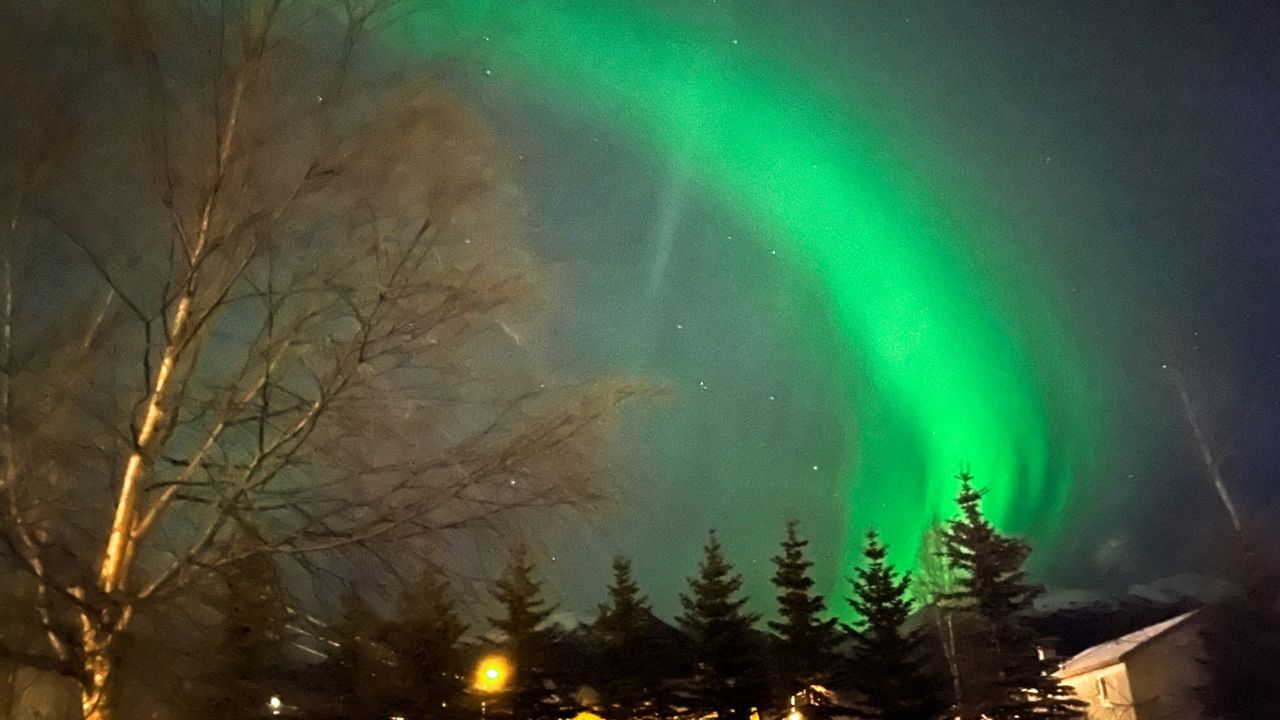On air quality maps, purple signifies the worst of it. In reality, it’s a thick, hazardous haze that’s disrupting daily life for millions of people across the U.S. and Canada, blotting out skylines and turning skies orange.
What You Need To Know
- Smoke from Canadian wildfires is pouring into the U.S. East Coast and Midwest and covering the capitals of both nations in an unhealthy haze
- The air quality index, a U.S. Environmental Protection Agency metric for air pollution, exceeded a staggering 400 at times in Syracuse, New York City and Pennsylvania’s Lehigh Valley
- Canadian officials say this is shaping up to be the nation’s worst wildfire season ever
- The Federal Aviation Administration paused flights from the Northeast, Ohio and Mid-Atlantic bound for New York's LaGuardia airport amid reduced visibility and warned of widespread impacts nationwide
And with weather systems expected to hardly budge, the smoky blanket billowing from wildfires in Quebec and Nova Scotia and sending plumes of fine particulate matter as far away as North Carolina should persist into Thursday and possibly the weekend.
That means at least another day, or more, of a dystopian-style detour that’s chased players from ballfields, actors from Broadway stages, delayed thousands of flights and sparked a resurgence in mask wearing and remote work — all while raising concerns about the health effects of prolonged exposure to such bad air.
The weather system that’s driving the great Canadian-American smoke out — a low-pressure system over Maine and Nova Scotia — “will probably be hanging around at least for the next few days,” U.S. National Weather Service meteorologist Bryan Ramsey said.
“Conditions are likely to remain unhealthy, at least until the wind direction changes or the fires get put out,” Ramsey said. “Since the fires are raging — they’re really large — they’re probably going to continue for weeks. But it’s really just going be all about the wind shift.”
Across the eastern U.S., officials warned residents to stay inside and limit or avoid outdoor activities again Thursday, extending “Code Red” air quality alerts in some places for a third-straight day as forecasts showed winds continuing to push smoke-filled air south.
In a statement Thursday afternoon, President Joe Biden called the smoky aftereffects of the Canadian fires "another stark reminder of the impacts of climate change." The president went on to detail the efforts the country has taken to support Canadian wildfire efforts, one day after his call with Prime Minister Justin Trudeau.
"Since May, more than 600 U.S. firefighters, support personnel, and firefighting assets have been deployed, working alongside Canadian firefighters to tackle what is likely to be the worst fire season in Canadian history, and one that has huge impacts here in the United States," President Biden continued. "Yesterday I spoke with Prime Minister Trudeau and offered any additional help Canada needs to rapidly accelerate the effort to put out these fires, particularly those in Quebec, where the fires are having the most direct impacts on American communities."
"I have directed the National Interagency Fire Center to respond promptly to Canadian requests for additional firefighters and fire suppression assets such as air tankers," he continued. "I’ve asked Secretary of Transportation Buttigieg to keep me informed about his progress in ensuring that we proactively manage the air traffic implications of the deteriorated air quality based on lessons learned from prior incidents."
Biden went on to inform Americans can find current air quality information at AirNow.gov and urged people to follow recommendations from local officials and the the Centers for Disease Control and Prevention.
In Washington, D.C., Mayor Muriel Bowser ordered schools to cancel outdoor recess, sports and field trips Thursday. The White House also postponed a planned Pride celebration on the South Lawn until Saturday "based on the projected air quality in the region."
In suburban Philadelphia, officials set up an emergency shelter so people living outside can take refuge from the haze.
New York Gov. Kathy Hochul said the state was making a million N95 masks — the kind prevalent at the height of the COVID-19 pandemic — available at state facilities, including 400,000 in New York City. She also urged residents to stay put.
“You don’t need to go out and take a walk. You don’t need to push the baby in the stroller,” Hochul said Wednesday night. “This is not a safe time to do that.”
The message may be getting through. So far, officials said Wednesday, New York City has yet to see an uptick in 911 calls related to respiratory issues and cardiac arrests.
More than 400 blazes burning across Canada have left 20,000 people displaced. The U.S. has sent more than 600 firefighters and equipment to Canada. Other countries are also helping.
"The President has directed his team to deploy all available Federal firefighting assets that can rapidly assist in suppressing fires impacting Canadian and American communities," the White House described in a readout of a call between President Biden and Prime Minister Trudeau on Wednesday.
"To date, the United States has deployed more than 600 U.S. firefighters and support personnel, and other firefighting assets to respond to the fires," the statement continues. "The two leaders also discussed continued cooperation to prevent wildfires and address the health impacts that such fires have on our communities."
Trudeau’s office said he thanked Biden for his support and that both leaders “acknowledged the need to work together to address the devastating impacts of climate change.”
Senate Majority Leader Chuck Schumer, D-N.Y., described what looked like apocalyptic scenes in his home state and urged federal officials to do more to combat the Canadian blazes.
"To walk through New York City yesterday was to walk on another planet," Schumer said on the Senate floor on Thursday. "The orange fog of wildfire smoke left our city unrecognizable."
"I am calling on [Agriculture] Secretary Tom Vilsack to double the number of Forest Service personnel deployed to fight these fires in Canada," Schumer added, urging the official "to double the number of personnel to mitigate the risk in the air for millions of Americans."
Canadian officials say this is shaping up to be the country’s worst wildfire season ever. It started early on drier-than-usual ground and accelerated quickly. Smoke from the blazes has been lapping into the U.S. since last month but intensified with recent fires in Quebec, where about 100 were considered out of control Wednesday.
“I can taste the air,” Dr. Ken Strumpf said in a Facebook post from Syracuse, New York, where the sky took on the colorful nickname of the local university: Orange.
The smoke was so thick in Canada’s capital, Ottawa, that office towers just across the Ottawa River were barely visible. In Toronto, Yili Ma said her hiking group canceled a planned hike this week, and she was forgoing the restaurant patios that are a beloved summer tradition in a nation known for hard winters.
“I put my mask away for over a year, and now I’m putting on my mask since yesterday,” Ma lamented.
Eastern Quebec got some rain Wednesday, but Montreal-based Environment Canada meteorologist Simon Legault said no significant rain is expected for days in the remote areas of central Quebec where the wildfires are more intense.
In the U.S., federal officials issued a ground stop Thursday for flights bound for New York’s LaGuardia Airport and nearby Newark Liberty International Airport, warning of potential widespread impacts.
"Reduced visibility from wildfire smoke will continue to impact air travel today," the FAA wrote on Twitter. "We will likely need to take steps to manage the flow of traffic safely into New York City, D.C., Philadelphia and Charlotte."
Flights were also halted to Philadelphia International Airport, but resumed later Thursday morning.
Major League Baseball’s Yankees, Nationals and Phillies had their games postponed. On Broadway, “Hamilton” and “Camelot” canceled Wednesday performances and “Prima Facie” star Jodie Comer left a matinee after 10 minutes because of difficulty breathing. The show restarted with an understudy, show publicists said.
It was not to be at Central Park’s outdoor stage, either. Shakespeare in the Park canceled its Thursday and Friday performances of “Hamlet,” saying ’tis not nobler in the mind to suffer the slings and arrows of wretched air.









